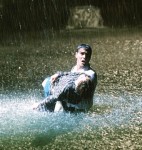 Winston Churchill told a story about a little boy who was playing on a pier and tumbled over into the water. The boy couldn’t swim and began to cry out for help. A soldier working at a nearby dock heard the desperate screams and dove into the sea. This brave young man swam out to the child, put him on his back, and brought him safely back to shore and into the loving and nurturing arms of the cheering crowd. The next day, the little boy’s mother came back to the docks looking for the courageous soldier. When the pier workers pointed her toward her child’s rescuer, she walked right up to him and asked, “Young man, are you the one who saved my little boy?”
Winston Churchill told a story about a little boy who was playing on a pier and tumbled over into the water. The boy couldn’t swim and began to cry out for help. A soldier working at a nearby dock heard the desperate screams and dove into the sea. This brave young man swam out to the child, put him on his back, and brought him safely back to shore and into the loving and nurturing arms of the cheering crowd. The next day, the little boy’s mother came back to the docks looking for the courageous soldier. When the pier workers pointed her toward her child’s rescuer, she walked right up to him and asked, “Young man, are you the one who saved my little boy?”
The soldier stood up. His chest began to swell and a smile broke out on his face as he answered her, “Yes, ma’am, I am.”
The woman leaned in and looked right into his eyes, “Where’s his cap?!?”
We preachers and ministers and elders and other church staff believe we are called by God. We believe we are charged by God to do the things we do in the name of his Son. It’s a high calling. It’s a noble vocation. It’s not a nine-to-five gig. It’s an all-consuming passion that compels us to preach and teach and pray and serve.
So when we answer that call from our Lord and move into the ministry, we all believe we’re entering a holy, God-sanctified realm. But the reality for most of us is that we’ve entered a system, a man-created and human-perpetuated system that grinds up and spits out preachers and elders. Broken preachers and elders are all around us. A lot of them are still working. A lot of them are not. Burned out. Trashed. Used. Abused. Walked all over. Stomped on. Chewed up and spit out like the gunk on the floor of a major league dugout.
The expectations we place on preachers and elders, the ways we treat them, the things we say to them and about them — behind their backs and even to their faces! — the things we demand of them, the attitudes of ownership and entitlement that guide our interactions with them, none of that is from God. We’ve been a part of this sick system for so long, we think it’s God’s way. But it’s not. It’s the human way. It’s the world’s way. The way we generally treat preachers and elders is not God’s way.
The reason wives and families of ministers and elders resent the church, the reason so many of our best and strongest and most faithful men refuse to serve when the church calls, the reason so few of our most gifted young people are interested in the call to preach and minister is that they all know they’re not entering into a holy partnership with God and his people as much as they’re entering into a life-sucking, soul-robbing, energy-draining system.
It’s not supposed to be this way. It doesn’t have to be this way.
It needs to change. We can do better. And we should.
The call from our God is for us to live in mutually-encouraging relationships in Christ. We are to “fan into flame” the gifts from God we see in our preachers and elders, not explode all over them with soaking wet, white fire extinguisher foam.
 We are all holy people, set apart by our God to serve his holy purposes. Our interactions with one another should also be holy. They should encourage and inspire, not discourage and depress. We should express gratitude, not attitude. Instead of arguing and complaining and criticizing, our words and actions toward those who serve us should be motivated by the Spirit who lives inside us, the Spirit of love, joy, peace, patience, kindness, goodness, faithfulness, gentleness, and self-control. Against such things there is no law. And no system.
We are all holy people, set apart by our God to serve his holy purposes. Our interactions with one another should also be holy. They should encourage and inspire, not discourage and depress. We should express gratitude, not attitude. Instead of arguing and complaining and criticizing, our words and actions toward those who serve us should be motivated by the Spirit who lives inside us, the Spirit of love, joy, peace, patience, kindness, goodness, faithfulness, gentleness, and self-control. Against such things there is no law. And no system.
Peace,
Allan
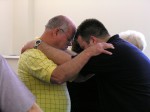
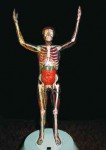


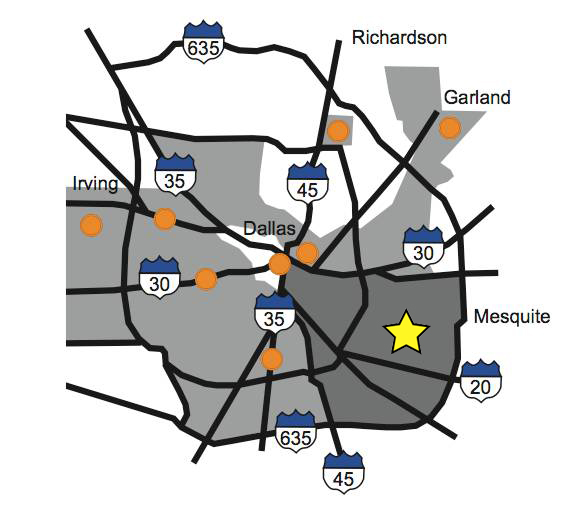

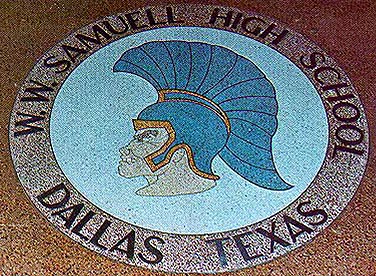


Recent Comments